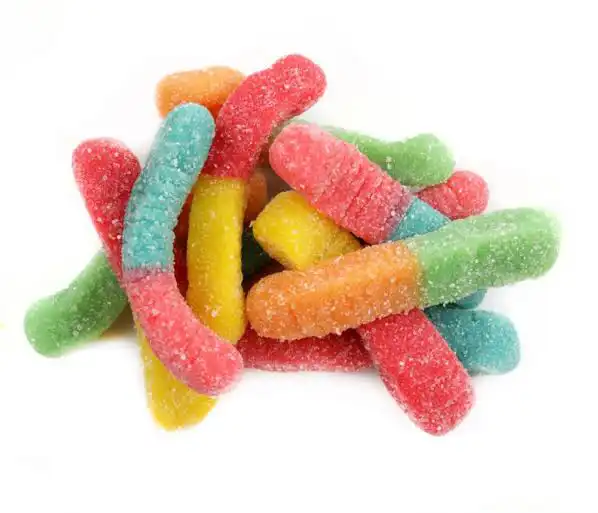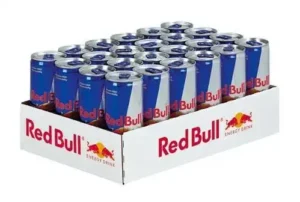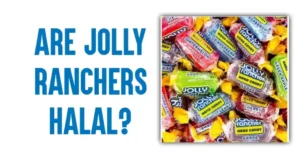Is Trolli Halal? A Clear Investigation

Trolli offers a diverse range of candies, including gummies, marshmallows, and soft licorice gums, sold across more than 80 countries.
The brand operates factories in Germany, Spain, Indonesia, China, and the Czech Republic. While these products are widely enjoyed, it is crucial for Muslims to ensure that such items meet the halal dietary guidelines before consumption.
For Muslims, determining whether food products are halal can be a complex process. The challenge with candies like Trolli lies in hidden ingredients, such as gelatin, which are often not explicitly labeled with sufficient details.
As consumers, we are responsible for investigating these ingredients, especially when non-halal elements like pork or alcohol could be involved.
What Makes a Product Halal or Haram?
In Islamic dietary law, a product is considered halal (permissible) if it meets two main conditions:
- It must not contain any haram (forbidden) substances, such as pork or alcohol.
- If it contains animal-derived ingredients (such as gelatin), the animal must have been slaughtered according to Islamic law (zabiha).
Even seemingly innocent products, like candy, can fall into the haram category if non-halal gelatin is used. This highlights the importance of halal certifications, which verify that every step in the production chain complies with Islamic principles.
Is Trolli Halal?
Based on our research and Ferrara Candy Company’s responses, we confirm that Trolli candies are not halal. The use of pork-derived gelatin in their products makes them haram for consumption by Muslims. Without halal certification or alternatives in their product line, Trolli remains unsuitable for those following a halal lifestyle.
For Muslims, it is crucial to verify ingredients and look for halal certifications when purchasing candy or other processed foods. When in doubt, avoiding the product is the best course of action, as Islam emphasizes staying away from doubtful matters.
READ ALSO: Are Jelly Belly Halal? (Bean Boozled Jelly Beans)
Why Gelatin Is a Concern for Muslims
Gelatin, commonly used in candies, marshmallows, and other snacks, is a protein substance extracted from the collagen of animal skin, bones, and connective tissue.
It is used to give foods a chewy and gummy texture, which is essential for products like Trolli gummies. However, not all gelatin is halal.
The two primary sources of gelatin are:
- Pork skin and bones, which are haram for Muslims.
- Beef bones and hides, which may be halal only if the animal was slaughtered according to Islamic laws.
The issue becomes even more complex in markets like North America, where food labeling practices often do not specify the animal source of the gelatin. Without clear labeling or halal certification, Muslim consumers are left uncertain, requiring them to contact manufacturers directly.
Our Investigation into Trolli Candy’s Halal Status
To find out whether Trolli products are halal, we contacted Ferrara Candy Company, which owns the Trolli brand. Since the packaging did not provide details about the gelatin source, we decided to reach out to the company for confirmation.
Our Message to Ferrara:
“Hello,
I hope your day is going well. I wanted to know if Trolli candy is halal. If you’re unsure, could you confirm if it contains any animal products, such as gelatin, or alcohol?
Thank you,
Iman Update Team”
Response from Ferrara:
“Hello,
Thank you for contacting us regarding Trolli® Sour Brite Crawlers®. Unfortunately, we are sorry to inform you that this product is not halal certified.
Thank you for your inquiry,
Ferrara Candy Company Consumer Relations Representative”
This response indicated that Trolli does not carry halal certification, raising concerns about the source of the gelatin used in their products.
However, to provide a clearer answer to our readers, we followed up with a more specific question regarding the gelatin’s origin.
Follow-Up: Is Trolli’s Gelatin from Pork or Beef?
Since the lack of halal certification did not definitively answer our question, we contacted Ferrara Candy Company again, this time asking explicitly whether the gelatin used was derived from pork or beef.
Our Follow-Up Message:
“Hello,
Can you please clarify whether the gelatin used in Trolli products is made from pork or beef?
Thanks,
Iman Update Team”
Ferrara’s Response:
“Hello,
Thank you for reaching out again. The gelatin used in Trolli Sour Brite Crawlers is derived from pork. If it were derived from beef, we would indicate it as beef gelatin on the label.
Thank you for your inquiry,
Ferrara Candy Company Consumer Relations Representative”
With this response, it became clear that Trolli candies contain pork gelatin. As pork-derived ingredients are haram, this confirms that Trolli products are not suitable for Muslims following a halal diet.
Examining the Ingredients: Trolli Peachie O’s Gummy Rings
To further understand what is inside Trolli products, we reviewed the ingredients list for one of their popular flavors, Peachie O’s Gummy Rings. Here are the ingredients:
- Corn Syrup
- Sugar
- Gelatin
- Modified Food Starch (Potato)
- Citric Acid
- Apple Juice from Concentrate
- Fumaric Acid
- Sodium Citrate
- Natural and Artificial Flavors
- Tartaric Acid
- Red 40
- Yellow 5
While the ingredients list mentions gelatin, it does not specify whether it is derived from pork or beef. This lack of clarity is common in many candy products, making it challenging for Muslim consumers to make informed decisions. However, based on the company’s confirmation, we now know that the gelatin in Trolli is from pork.
Halal Certification: Why It Matters
Halal certification offers consumers peace of mind, as it guarantees that all ingredients and processes involved meet Islamic dietary requirements. Without this certification, products containing animal-based ingredients remain in a grey area.
It is essential to understand that even if a product does not explicitly list haram ingredients, the absence of halal certification can signal non-compliance with halal standards.
This is especially relevant for products like candy, where gelatin, enzymes, or flavorings may come from non-halal sources.
Why It’s Important to Avoid Grey Areas in Halal Food
In Islam, it is advised to avoid food and products that are doubtful or questionable in nature. The Prophet Muhammad (PBUH) said:
“What is lawful is clear, and what is unlawful is clear, but between them are ambiguous matters that are unknown to most people. Whoever avoids the doubtful has saved his religion and his honor.” (Sahih al-Bukhari, Hadith 52)
Since Trolli’s use of pork-derived gelatin places it firmly in the haram category, it is essential for Muslims to seek halal-certified alternatives to ensure they stay on the safe side.
Halal Alternatives to Trolli Candy
If you enjoy gummy candies but want to maintain adherence to halal guidelines, here are some alternatives you can try:
- Haribo Halal Gummies – Available in select countries with halal-certified versions.
- SweetZone Gummies – A halal-certified brand widely available in Europe and the Middle East.
- The Yumy Bear – A vegan, gelatin-free candy option.
- Zainab’s Gummies – A small business offering halal-certified gummy sweets.
Choosing halal-certified or vegan alternatives ensures you can enjoy similar treats without compromising your values.
Conclusion
While candy shopping may seem straightforward, hidden ingredients like gelatin make it challenging to determine a product’s halal status.
We encourage Muslims to research thoroughly, contact manufacturers, and seek halal-certified alternatives whenever possible.
By being mindful of what we consume, we not only protect our faith but also support businesses that uphold halal standards. Fortunately, there are many halal-friendly gummy candy options available today, allowing you to indulge without worry.






